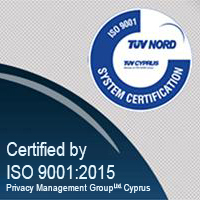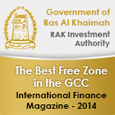What is an “operative agent” and what benefits can I gain from using one?
Firms that are not resident in the EU – that is, firms who have neither a VAT ID number/tax number nor a representative office in the European Union – have long taken advantage of the fully legal solution of enlisting an “operative agent”.
Though the concept is quite simple, the legal structure is complex. The enlisting party (principal), who possesses the requisite knowledge and expertise regarding the operations of their business, commissions an autonomous and completely independent company (operative agent) to act as an agent for some or all of their company’s international business activities.
This type of agreement is used frequently for delivering goods and services to companies located in the EU.
How do offshore and non-EU companies use an “operative agent”?
The operative agent enters into commercial agreements with the principal’s customers on the principal’s behalf. Usually, a formal agreement is made between the principal and the operative agent for this purpose. The operative agent receives a set amount of remuneration for the service they provide. All business transactions are carried out by the operative agent under the instruction of the principal.
The operative agent is a company established in the EU specifically for this purpose and has the requisite VAT ID number, tax number and bank account in the EU country in which it is based. To be accepted by the tax authorities, an operative agent must have been created specifically for the above-mentioned purpose and must have multiple independent principals (among other things). EU countries such as Cyprus or Bulgaria are not suitable as bases for operative agents.
Example
Under the principal’s instruction, the operative agent enters a commercial agreement for the purchasing of shirts from a Portuguese shirt manufacturer and the selling of these shirts to an Italian fashion group. The shirts are delivered to a free trade zone for further transhipment. The Portuguese company sends the invoice (for the market value of the shirts) to the operative agent, stating the VAT ID number. Both EU firms have a VAT ID number, which means that the operative agent is not required to pay VAT. At this point, the operative agent sends an invoice to the Italian fashion group. Again, both companies – the operative agent and the Italian fashion group – are registered for VAT in the EU, which means that the VAT does not need to be paid. After the goods have been received and checked, the Italian fashion group transfers the value of the invoice to the operative agent via SEPA transfer, who then uses SEPA transfer to send the shirt manufacturer’s payment to Portugal within a payment period of 60 days.
The proceeds from this transaction are paid directly to the principal’s account, minus the individually agreed remuneration for the operative agent..
Fees For Using An “Operative Agent”
| Application for and preparation of agreement (one-off): | USD 215.00 |
| Operative agent commission: | according to individual agreement |
 ARTICLE FROM OUR INSIDER REPORT (01/2016) ON THE TOPIC OF GLOBAL AGENCIES
ARTICLE FROM OUR INSIDER REPORT (01/2016) ON THE TOPIC OF GLOBAL AGENCIES
Did you know that existing offshore and non-EU companies can operate “incognito” in Europe in a fully legal way?
No?
In today’s article, you’ll learn what the term “global agency” refers to, how such an agency is used to best effect and what advantages it can offer your firm.
What Is A Global Agency?
A global agency – also known as an operative agent – is an EU firm founded specifically to transact business on behalf of a non-EU or offshore firm. To enable it to fulfil this purpose, it has a valid VAT ID number, a tax number, a business premises and a bank account in the EU country in which it was founded.
To be accepted by the tax authorities, an operative agent must have been created specifically for the above-mentioned purpose and have multiple independent principals (among other features.)
When Is A Global Agency Used?
Firms that are not resident in the EU – that is, firms who have neither a VAT ID number/tax number nor a representative office in the European Union – have long taken advantage of the fully legal solution of enlisting an “operative agent”. This protects their identity whilst enabling them to conduct international (particularly Europe-based) business transactions that are recognised under fiscal law.
Though the concept of a “global agency“ is simple, the legal structure is complex.
Upon the written instruction of the principal (e.g. an offshore company), the operative agent / global agency enters into a contractual agreement with the principal’s customer. The principal, who possesses the requisite knowledge and expertise regarding the operations of their business, retains executive power over this contractual relationship.
The principal’s instructions to the global agency take the form of a formally concluded agreement between the two parties.
This agreement serves to ensure customer protection and mutual adherence to the obligation of confidentiality. It also establishes the operative agent’s level of remuneration and defines the exact nature of their role.
In return for providing this service, the operative agency receives a single one-off payment per transaction, with the amount dependent on the value of the contract. For this amount, the operative agents agrees, at the principal’s instruction, for all associated transactions to be conducted through them, for payment to be received by them and forwarded to the operative agent, etc.
A GLOBAL AGENCY AFFORDS YOUR COMPANY DISCRETION AND FLEXIBILITY
Regardless of where your company is resident – starting now, you can have access to any economic area!
Today’s insider tip isn’t just well-suited for business between offshore and European firms – operative agents can exist in any other shape or form imaginable.
Let your creativity run wild and get in touch! We guarantee that the Privacy Management Group’s global agency service will offer your firm advantages you never thought were possible.







